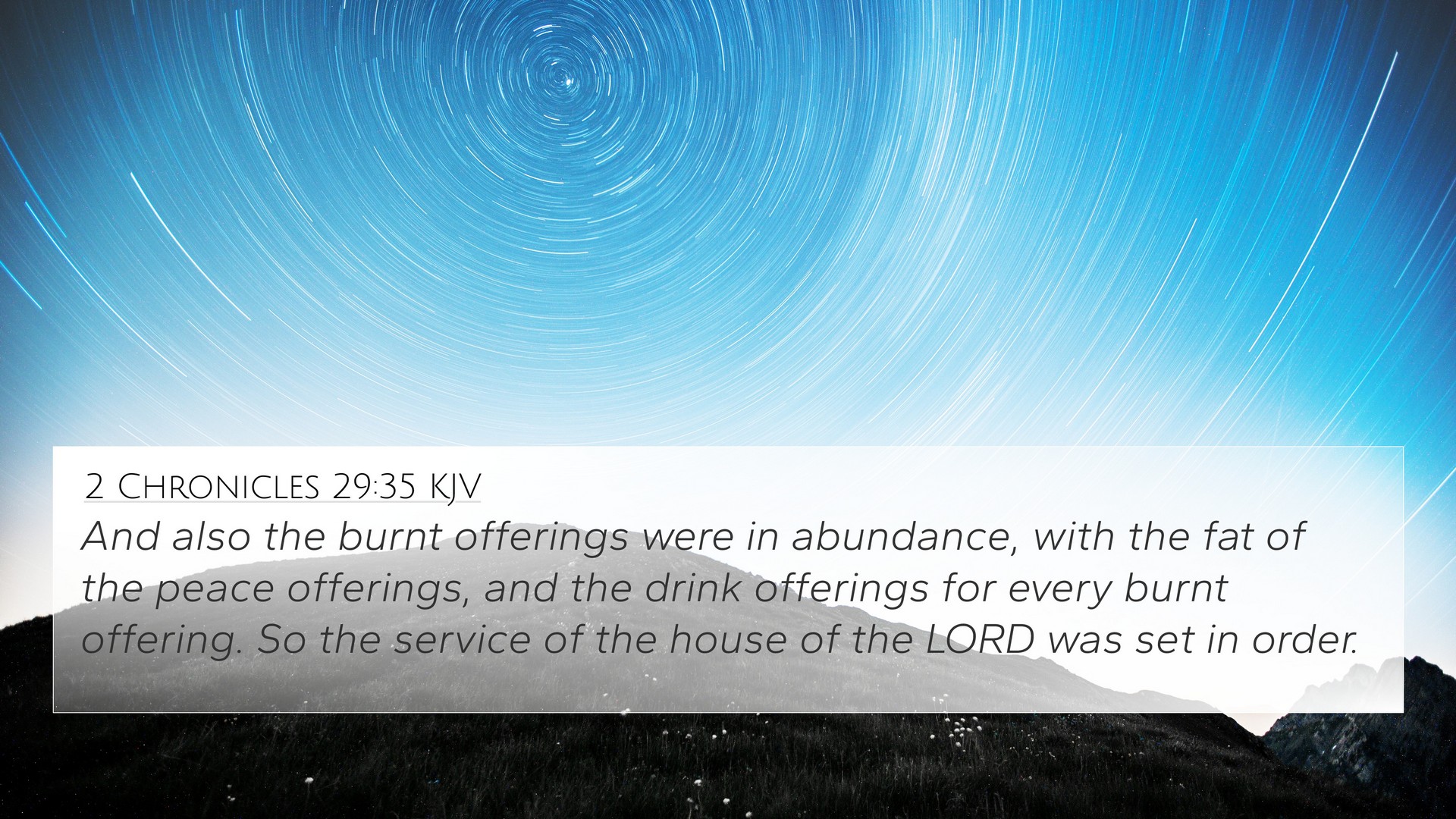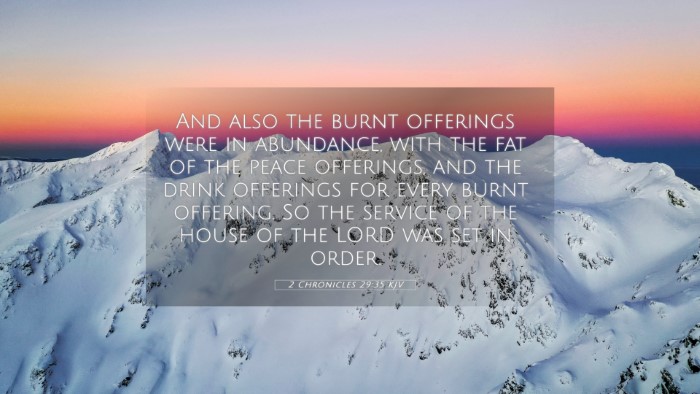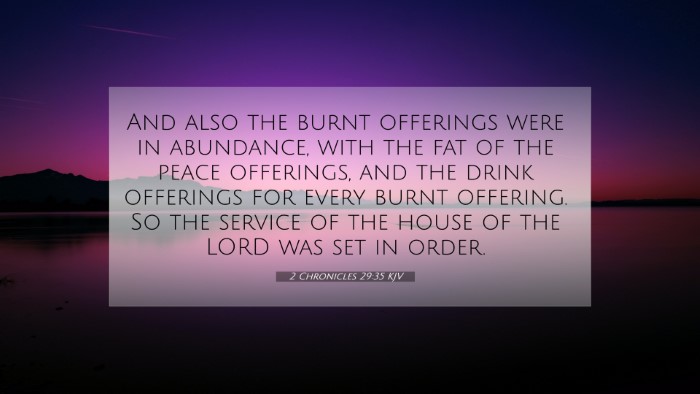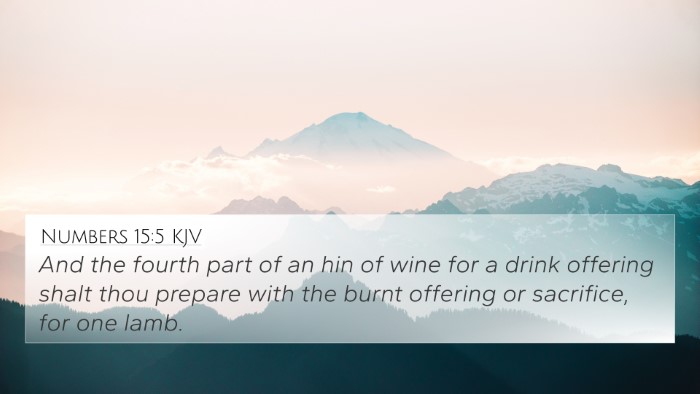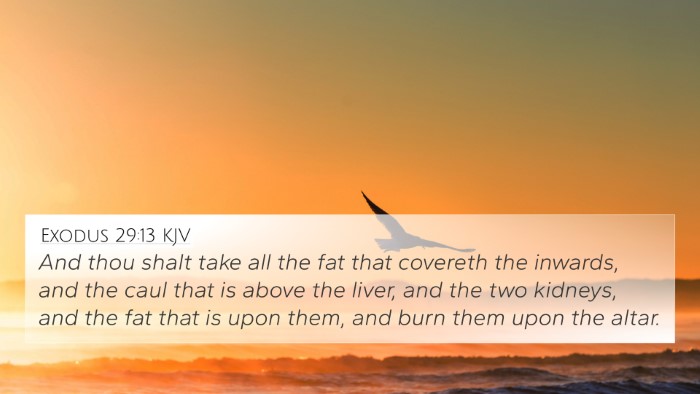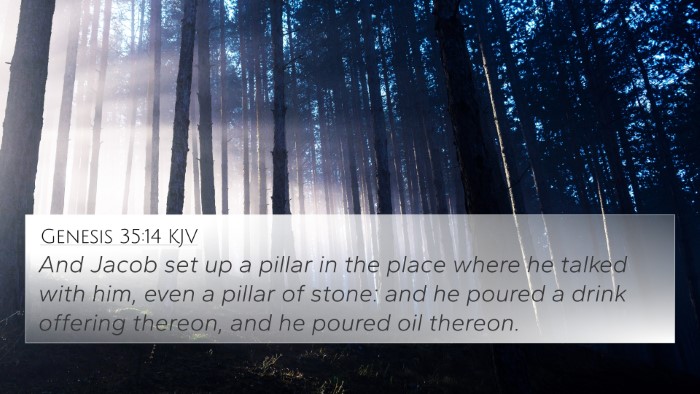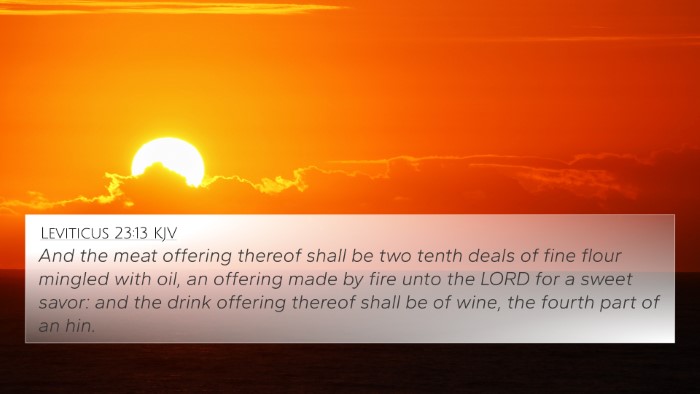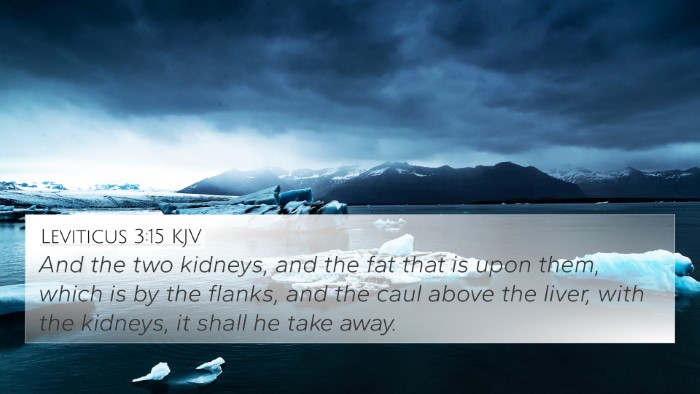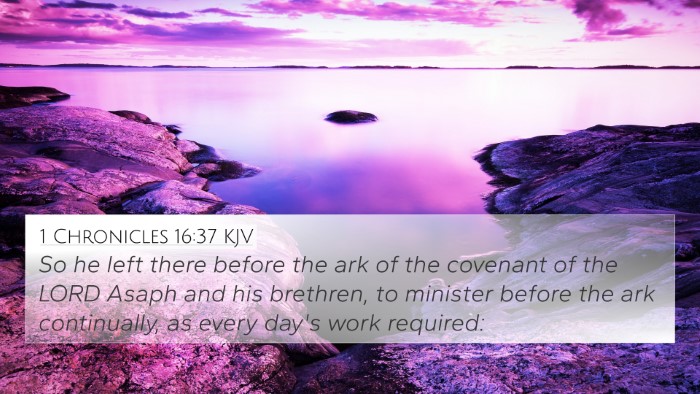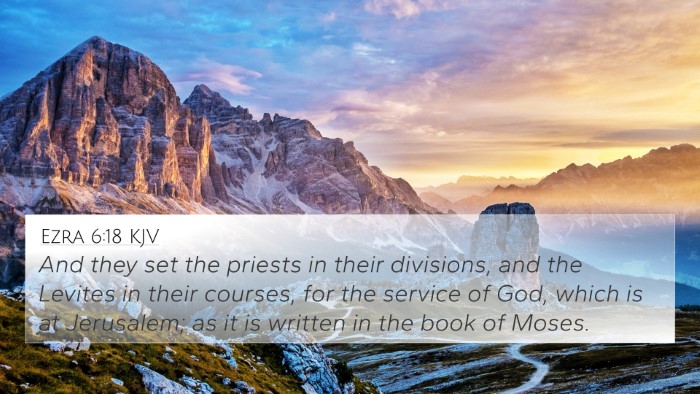Understanding 2 Chronicles 29:35
2 Chronicles 29:35 states:
"And also the burnt offerings were in abundance, with the fat of the peace offerings and the drink offerings for every burnt offering. So the service of the house of the LORD was set in order."
This verse encapsulates a moment of restoration in worship practice under King Hezekiah, emphasizing the significance of proper worship and the re-establishment of the temple service after a period of neglect.
Summary of Insights
Commentaries from renowned scholars provide valuable insights into the meaning of this verse:
- Matthew Henry: Henry highlights the importance of the burnt and peace offerings as symbols of devotion and reconciliation with God. He points out that these offerings were integral to the temple service and reflected the people's commitment to restore true worship.
- Albert Barnes: Barnes notes that the abundance of offerings indicates a genuine revival among the people of Israel, fueled by Hezekiah's efforts to lead them back to God. He emphasizes that such restoration leads to blessings and renewed favor with God.
- Adam Clarke: Clarke explains the significance of the temple service being "set in order," suggesting a meticulous approach to worship that reflects God's holiness and the proper channels through which His people should approach Him.
Theological Implications
2 Chronicles 29:35 serves as a reminder of the necessity for structured worship in the lives of believers. This verse illustrates how proper offerings and a dedicated service can revitalize one's relationship with God.
Cross-References
Here are relevant Bible verses that relate to 2 Chronicles 29:35 and provide deeper understanding:
- Leviticus 1:3-9: Discusses the requirements and explanations of burnt offerings.
- 2 Chronicles 7:5: Refers to Solomon's offerings at the temple's dedication.
- Psalm 51:17: Emphasizes that God desires a broken spirit and a contrite heart, rather than mere ritual.
- Romans 12:1: Encourages believers to present their lives as living sacrifices, echoing the theme of dedicating oneself to God.
- Hebrews 13:15: Connects sacrifices with praise, highlighting the importance of worship.
- Isaiah 56:7: Indicates that even Gentiles who join themselves to the Lord are welcomed in worship, showing the expanding reach of God's grace.
- Malachi 1:6-14: Critiques improper offerings and reinforces the importance of offering God the best, reflecting God's desire for sincerity.
Comparative Analysis
By examining the connections between biblical texts, one can explore the inter-Biblical dialogue about worship, offerings, and divine favor:
- Thematic links between Exodus 30:9 and Hebrews 9:22 signify the transition from the Old Testament sacrificial system to the New Testament fulfillment through Christ.
- Cross-referencing 1 Peter 2:5 affirms the believer's role as a chosen priesthood, emphasizing the continuity of worship practices.
Tools for Bible Cross-Referencing
For deeper studies and understanding, consider utilizing:
- Bible concordances: For exploring word meanings and themes.
- Bible cross-reference guides: To identify connections between verses.
- Cross-reference Bible study materials: To enhance your study approach.
Conclusion
In exploring 2 Chronicles 29:35, it becomes evident that structured worship, marked by sincerity and abundance in offerings, is crucial to spiritual health and restoration. This verse not only serves as a historical reflection but also as a practical guide for modern believers in their worship practices.
By leveraging the insights from various biblical scholars and cross-referencing the scripture, one can cultivate a richer understanding of this pivotal moment in Israel's history and apply its lessons in a contemporary context.
